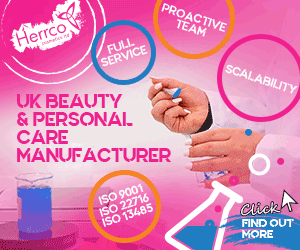Lancôme has chosen beauty packaging manufacturer Texen to develop the packaging for its Lash Idôle mascara, designed to complement the fragrance of the same name while highlighting the brand's premium positioning.
Featuring a square, faceted and flat design with black and pink metallic décor, Texen utilised its SMART mascara 4.0 production line to create the bottle, which features a flat, black area designed to be as big as possible to evoke Lancôme's Idôle fragrance bottle, and a metallic finish to highlight the product's square lines for a premium finish.
To meet the aesthetic and technical challenges of the project, Texen carried out multiple tests to guarantee the décor's resistance during in-line assembly, paying particular attention to the square edges that were most susceptible to damage, according to the company.
Meanwhile, in order to deliver high speed production without compromising on quality, Texen took a personalised approach to its SMART mascara line, which required the company to innovate with the product's aluminium lacquering – a first for the machinery, according to Texen.
Specialising in mascara packaging and various types of décor, the company's 100% automated SMART line – standing for Speed, Modularity, Agility, Reliability - is designed to offer beauty customers a range of benefits including time savings, thanks to high-speed manufacturing; in-vacuum varnishing, to ensure the parts are protected; reduced labour and transport needs; and products made in the company's native France.
It is said to allow Texen's brand partners, which include the likes of Sothys, Guerlain and Dior, a sustainable compromise between competitivity, stock limitations and unnecessary waste generation.
Indeed, the modularity of the latest generation SMART® production lines allows brand partners a sustainable compromise between competitivity, the optimization of industrial spaces, limitations on intermediate stock, and waste generation, including the use of high-solid varnish.




